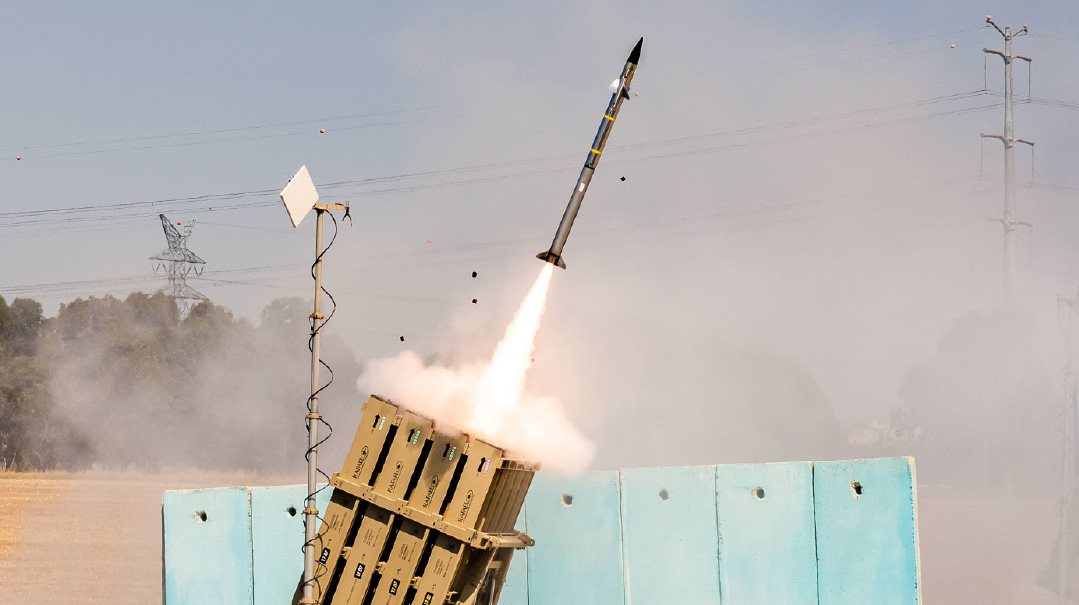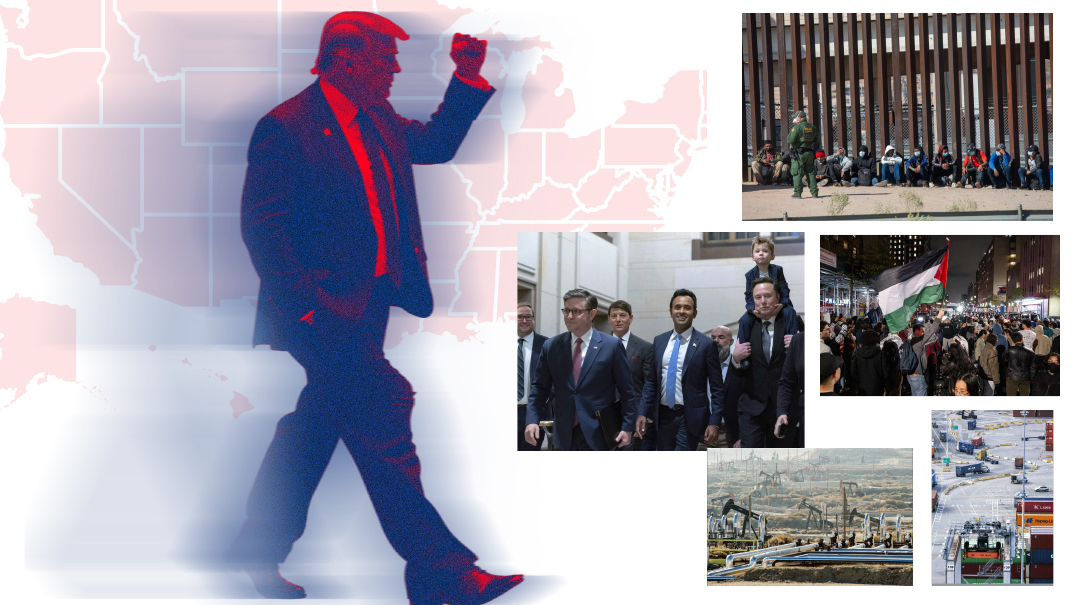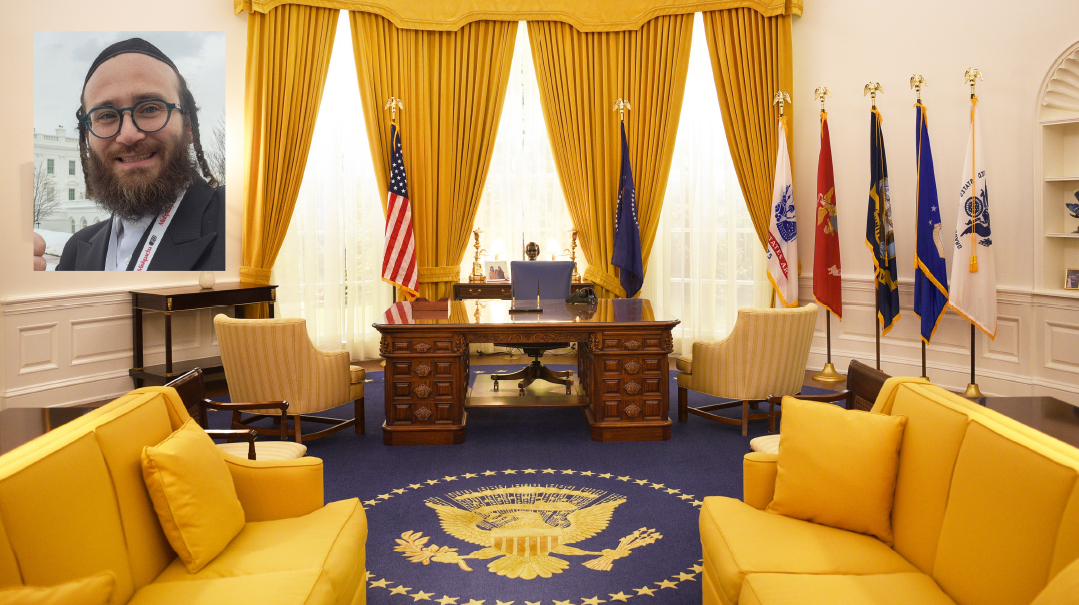Friend in High Places

Israel's wish list for Trump

America’s military aid is generous – but comes with strings attached (Photo: IDF Spokespersons' Unit)
The Middle East bears no resemblance to what Donald Trump left behind at the end of his first term, nor will it look the same as it does today when his second term ends in January, 2029.
Israel has great expectations once Trump is sworn in next Monday. Here are four ideas for how Trump and Israel can get on the same page and stay there.
1
Help Israel Project Regional Power
Israel remains engaged in multiple conflicts and will continue to maintain a war posture for the foreseeable future. The IDF has significantly weakened its enemies’ military capabilities, yet their determination to fight Israel persists.
The ceasefire in Lebanon is precarious. Any ceasefire in Gaza in exchange for the hostages will last only until Hamas rearms and rebuilds its forces. Although Iran’s military withdrawal from Syria has created a physical distance, Iran is closer than ever to owning nuclear weapons. Israel confronts new uncertainties in Syria, which may become a proxy for Turkey, thus fueling the ambitions of its megalomaniacal leader, Recep Tayyip Erdogan, to restore the Ottoman Empire and dismantle Israel. Trump is the only one who can put Erdogan in his place or scare Iran into submission.
Currently, Israel is retaining territories in Gaza, Lebanon, and Syria to strengthen its defenses and to launch new offensives if needed. Still, Israel is poised to withdraw from Lebanon one week after Trump assumes office under the existing ceasefire terms. To avoid unwanted flare-ups that would distract Trump from executing his aggressive first 100-day domestic agenda, he must convey to the new Lebanese and Syrian governments that until they genuinely assert control and demonstrate readiness for peace with Israel, the US will back Israel holding its ground.
2
Recognize Israel’s Borders Again
A mantra circulating in Washington is “Take Trump seriously, not literally.” We’ll soon find out how this applies to Trump’s ambitions to buy Greenland, make Canada the 51st state, and reclaim the Panama Canal.
The US has no historical claims to Greenland or Canada. While it paid for and constructed the Panama Canal, it ceded control to Panama in a treaty that the Senate ratified with a two-thirds majority in 1978. Meanwhile, Israel has a 3,000-year-old claim to Judea and Samaria and to parts of south Lebanon and southeast Syria, where IDF forces are stationed. The same year the US acquired the land for the Panama Canal, the Jewish National Fund (JNF) purchased 13,000 acres between the Golan Heights and Damascus. They have the deeds, and so does the Syrian land registry.
Trump’s transition team invited representatives from the Yesha movement (Judea, Samaria, and Gaza) to attend Monday’s inauguration. Don’t expect them to raise their hands and catch Trump’s attention during the swearing-in ceremony with Chief Justice Roberts. Yet given Trump’s ambitions for territorial expansion, he should be able to better empathize with Israel’s wish for US recognition of its historical borders, which would provide Israel with better security and reduce its future need for US military assistance.
3
Make Israel Arms Independent
Last week, the Nagel Commission, appointed by the Netanyahu government to formulate recommendations on the force-building needs and security budget for the coming decade, advised Israel to produce much of its armaments (ammunition and equipment) domestically to mitigate arbitrary pressure or arms boycotts from foreign suppliers. The Nagel Commission estimated this would cost Israel more than NIS 133 billion ($36 billion) over the next ten years.
The US provides Israel with $3.3 billion in military aid annually under a ten-year Memorandum of Understanding (MOU) signed in 2018, which is set to expire in 2028. Negotiations for a new agreement are expected to begin before the end of 2026, just as America holds midterm elections that may either bolster or weaken Trump’s narrow Republican Congressional majority.
This topic is sensitive. Many Americans are unaware that the $3.3 billion in “aid” primarily subsidizes US defense manufacturers, since Israel is required to allocate this money to US-based defense firms. According to the American Jewish Congress, Israel’s purchases from 1,000 American defense companies directly support more than 20,000 US jobs.
During the campaign, Trump suggested that he might condition foreign aid as a loan rather than a gift. He never specified that this would apply to Israel, and even if he grants Israel generous terms, Israel cannot afford to be at the mercy of a less supportive or even hostile administration.
The next MOU negotiation will be an ideal opportunity for Israel to gradually wean itself from American aid, replacing it with American investment in Israel’s armament industry, to include joint ventures of benefit to the US military.
4
Back Israel’s Government Again
Speaking of 2026, US midterms and MOU renegotiations — mark another date on your 2026 calendar: October 27. That’s when the next Israeli election is scheduled, assuming the present government completes its full term. Since that’s less likely to happen than Canada becoming the 51st state, expect a new election no later than the spring of 2026.
A new Israeli government will subject the Trump-Israel relationship to new stress tests. Disregard the weekly polls that survey Israeli voters based on the existing parties or which has-beens are likely to return. There will be new political parties and configurations to boggle the mind. There is no guarantee Bibi will remain on top. He has health issues, and even though his defense has turned the tide in his favor in the three legal cases against him, it’s hard to imagine the judges will let him go scot-free without some plea bargain that will end his storied career.
Trump and his administration would benefit from a more sophisticated understanding of the Israeli electorate. Israelis were bewildered when Trump retweeted a video last week that contained anti-Netanyahu content. What was his intent?
The Biden administration came dangerously close to stoking regime change when Biden, Blinken, and ex-ambassador Tom Nides howled over Israel’s proposed judicial reforms. Now, these reforms are back on the table, and are sure to further energize the left and Arab parties, which won 37% of the vote in the last election.
Israel’s Islamist enemies also harden their stances whenever any iota of public daylight opens up between the US administration and the Netanyahu government. That’s why the Biden administration’s pressure on Israel to supply humanitarian aid to Gaza or to restrain itself militarily was so counterproductive.
Trump knows his power, and to paraphrase the Washington Post, the incoming administration is “testing the boundaries” of foreign election interference. Trump’s incessant badgering of Canada’s Justin Trudeau probably helped pressure the woke prime minister to resign. Trump advisor Elon Musk has been trolling Britain’s leftist Labour government and is supporting Germany’s far-right party, the Alternative for Germany (AfD), which has its roots in neo-Nazism. To Musk’s credit, he elicited a “yes, of course” from the party’s parliamentary leader, Alice Weidel, when he asked her if she unequivocally supports Israel’s existence.
Israelis are in a fragile state, but Trump can count on them as his most loyal supporters.
A November 4 survey by the Israel Democracy Institute, a left-leaning think tank, showed that 72% of the Jewish population supported Trump, compared to just 11% for Kamala Harris.
Whatever Trump has in mind to stabilize the Middle East, and no matter how he plans to proceed in expanding the Abraham Accords, Trump will need a strong, right-wing, no-nonsense government in Israel to be his political soulmate in the Middle East’s only democracy.
Israelis can only hope and pray that he will exceed what he accomplished in his first term to make Israel stronger and safer again.
(Originally featured in Mishpacha, Issue 1045)
Oops! We could not locate your form.





